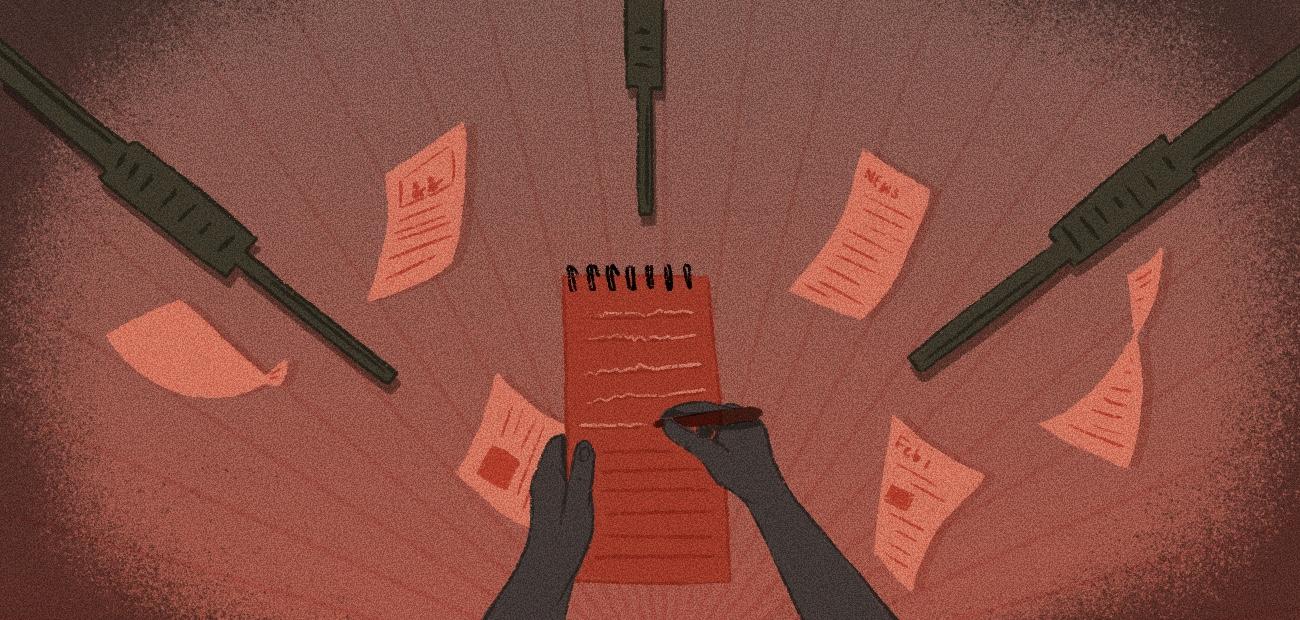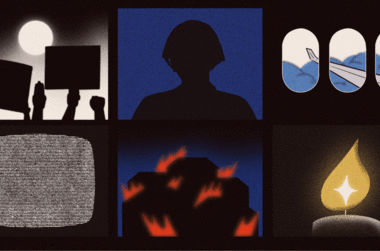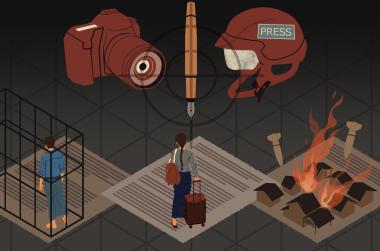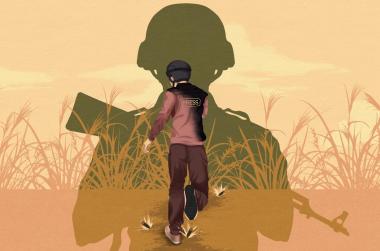The writer is a Kachin journalist who is receiving support from The Kite Tales to write these diaries.
I was eight years into my journalism career before I encountered a really big, life-changing news story.
I am a journalist based in Kachin State and I have spent my working life reporting impartially on all kinds of news here.
But on February 1, 2021, the day the Myanmar military took power in a coup led by Min Aung Hlaing, all the dreams of my future and freedom disappeared. It was the day a new parliament was due to convene for the first time after Daw Aung San Suu Kyi and her National League for Democracy won the elections for a second time the previous year.
I woke up just past four in the morning and quickly realised all the mobile networks were down. I couldn’t reach anyone. So I became suspicious and as soon as it started to get light, I jumped on my motorcycle to the housing complex for ministers and government offices in the Kachin capital Myitkyina to take a look. There were military vehicles and a large number of soldiers in these places and at several road intersections.
I went to see journalist friends to ask them what was going on.
“The military has staged a coup. Daw Suu and others have been detained,” they told me.
I rushed to buy a radio to listen to the news. When I heard with my own ears from the army-run news outlet that this was true, all my hope drained away, like pouring water onto sand. I felt like a prisoner. That whole day, I could barely believe this was happening.
Within days of the coup, I could see that the old customers at my regular tea shop no longer had the same looks as they did before. They did not dare to speak as loudly as they used to. They no longer dared to watch the news openly. It was like how things used to be before 2010 when Myanmar opened up. But I also heard a friend telling his friends, for the first time,
“If you do not fight back, you will suffer for the rest of your life,” they said. “If there is a revolution, take part as much as possible”
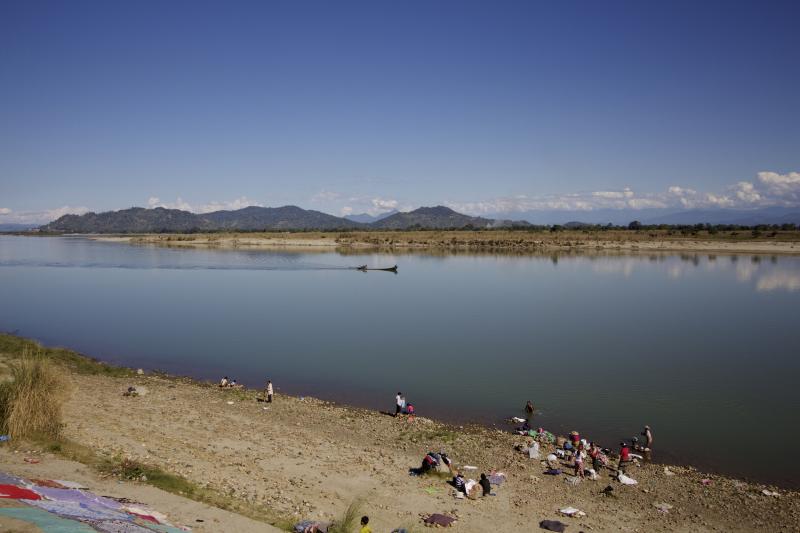
When the military started arresting politicians and journalists, l felt really insecure and stopped sleeping, something I’m still experiencing.
Some journalists had already had to stop working when the coronavirus began to spread. But I continued to work because I wanted to inform the public, especially the Kachin people, about the pandemic.
Then, amid all this, the military took power and forced some major news outlets to shut down. With the threat of arrest hanging over them, some journalists redoubled their efforts. Most now work in secret.
As a journalist, I am determined to cover injustice and all the developments in Kachin. I continued to cover what was happening, including the anti-military protests, taking pictures, and writing news as much as I could.
The rallies began in Hpakant on 6 Feb 2021 and spread to every town and village in Kachin State. After that, in Myitkyina and other densely populated cities, hundreds of thousands of people came out to demonstrate.
The military shot protesters all over the country, and they used live ammunition to break up the main protest in Myitkyina on March 8. U Cho Ta, 62, and Ko Zin Min, 18, were killed and several others were injured. Crackdowns continued across the country, including in Kachin, killing scores of people.
Kachin journalists were also arrested. That same month, five Myitkyina-based journalists and Ko Naung Yoe, a Hpakant-based freelance journalist were arrested. The Myitkyina journalists have been released but Ko Naung Yoe is still in prison.
After the arrest of the journalists, I decided to go into hiding because I wanted to continue working. I heard the authorities were looking for me but I managed to get away.
The streets of Myitkyina, which used to be bustling with crowds at the end of each workday, became deserted. The number of protest columns dwindled and flash protests started appearing in their place. I continued to work while on the run. Covering and hearing about the shootings and crackdowns made me more determined to join the fight by writing about the true situation in Myanmar.
By the time I left home, fighting had started between the Kachin Independence Army (KIA) and the military junta. On Mar 2, following a series of violent crackdowns on protesters, the KIA announced it would stand with pro-democracy groups. Since then clashes have continued and KIA has trained local resistance fighters at its headquarters in Laiza.
I covered that conflict, despite difficulties with communications and finding sources. And while fighting in Kachin subsided in September last year, there is intense fighting now in Sagaing region, Chin State and Kayah State.
After about six months in hiding, I took a risk and snuck back to Myitkyina. The town looked different from when I saw it last, when arrests and crackdowns left it quiet and deserted. It seemed to be functioning as before and was calm except for the occasional bombing of communication towers.
It has been exactly one year since the coup. This is a time when everyone is working to bring power back to the people. Our lives are not the same as before. In the past, we were allowed some freedom to report, but now we are separated from our families and working despite the dangers.
In order for the people to regain democracy and build a future federal state, in order for us to restore freedom of the press, we need to write about what is really happening and the people need to help us with tips. Therefore, I’d like to urge everyone to work together to break free from the military dictatorship.
Artwork by JC.

